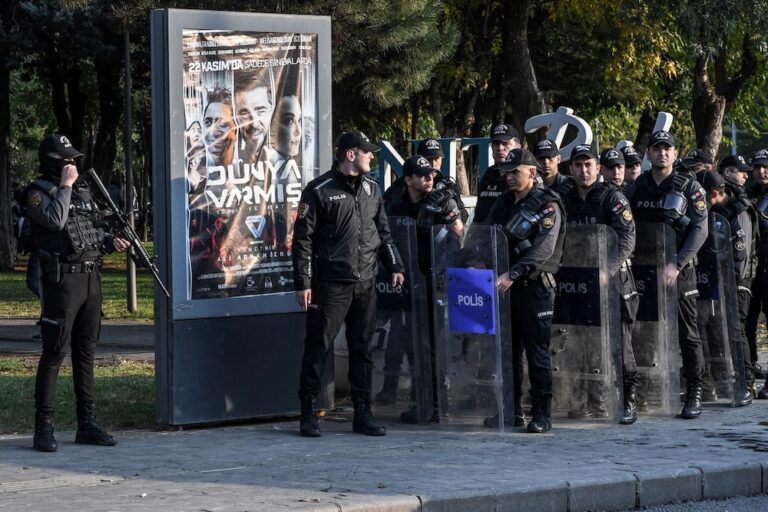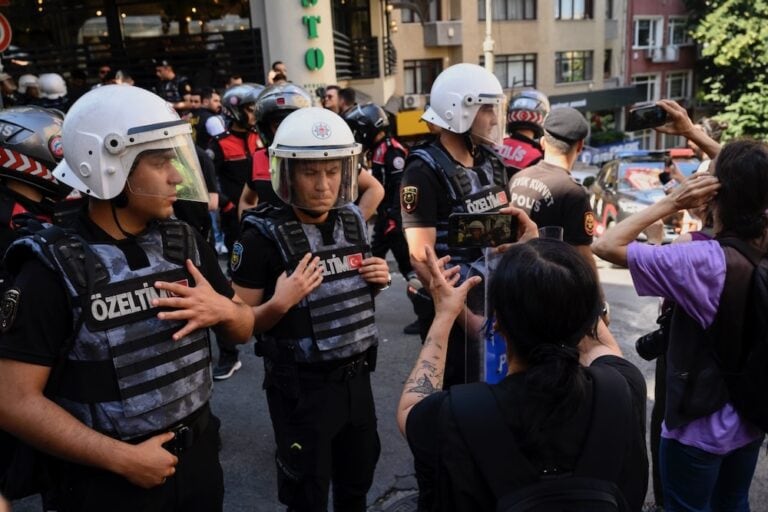BIANET laments the poor state of press freedom in the country and says that recent judicial reforms that label some press crimes as "terrorism" will make the situation worse.
(BIANET/IFEX) – 3 May 2012 – One hundred journalists and 35 newspaper distributors were in jail in April. Journalists were in the streets and courts in order to claim the rights of their prisoner colleagues and to ensure a fair trial. Forty-seven journalists were sentenced to prison in April 2011.
The third judicial package that provided a conditional pardon to press cases was the subject of discussion in 2012. Journalism organizations believe that this change will not solve the main problems of the freedom of expression as the judiciary acts arbitrarily enlarge the imprisonment periods and labels some press crimes as “terrorism”.
One hundred journalists and 35 newspaper distributors were labeled as “journalists trying to create a media environment for illegal organizations” by “reporting on certain news and incidents”, “writing a book”, “journalism critical of the government” or “working for a Kurdish media outlet”.
The journalists and distributors are accused with “committing crimes on behalf an illegal organization without being a member of that organization” and/or “willingly and knowingly assisting an illegal organization and being part of its hierarchical structure”.
Some journalists are being tried under allegations of founding an armed or unarmed illegal organization, related instigation and administration or membership of that organization and a number of journalists have been convicted.
Only four journalists are facing trial directly because of news, articles, comments and books they wrote: Chief editors of Azadiya Welat newspaper Vedat Kurşun, Ruken Ergün and Ozan Kılınç, Aram Publishing owner and Hawar newspaper official Bedri Adanır.
Despite the fact that their arrests is a precautionary measure, Article 100 of Turkish Criminal Procedure Code was in practice during the last quarter of 2012; criteria such as “danger of absconding,” “destruction, concealment, alteration of evidence,” “influencing the witnesses,” and “intense and strong suspicion of crime” were applied as ordinary and routine practices.


